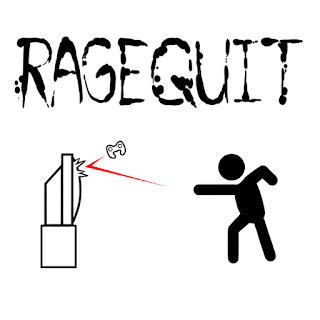In an upcoming interview for the Scholarly Communications podcast, I was reminded of an argument I made in the Better Posters book about relevance.
What someone thinks is “relevant” to them isn’t fixed, but varies.
But I didn’t have an example in the book, so here’s a concrete example of this principle. It’s a well known phenomenon among video game players: the rage quit.When someone starts playing a video game, you have to think that they are pretty invested in that process. Games are expensive, complex, and take a long time to complete. Players want to work through the game.
Some people try a game, decide quickly that this isn’t for them, and stop.
But many players invest a lot of time playing the game. Then, they reach a point where the game suddenly gets harder. A lot harder.
Players know that games are not supposed to be easy. Part of the fun is overcoming challenges and obstacles. But there is a big difference between feeling, “This is hard” and “This is impossible.”
When players feel it is impossible to continue in the game, they’ll quit. And this is rarely a detached, emotional decision of, “I have reached my peak skill level, therefore it is pointless to continue.” No, that decision comes after long hours of frustration, trying to do the same thing repeatedly and failing.
So when people quit, they don’t go quietly. They are full on mad.
That’s a rage quit. (There are compilations of these moments on YouTube if you have a few minutes to kill watching other people be mad. Which can be strangely satisfying to watch.)
Even someone who is deeply motivated to do something like understand the scientific or academic content of your poster, will only take so much frustration. Everyone has a limit.
So making your poster easier for a reader, faster to grasp, more accessible, is going to help more viewers find your work relevant to them.
P.S.—If you have never completed a big adventure video game that takes dozens of hours... let me tell you, you’re missing out. It’s a very satisfying feeling of achievement.


No comments:
Post a Comment
Comments are moderated. Real names and pseudonyms are welcome. Anonymous comments are not and will be removed.